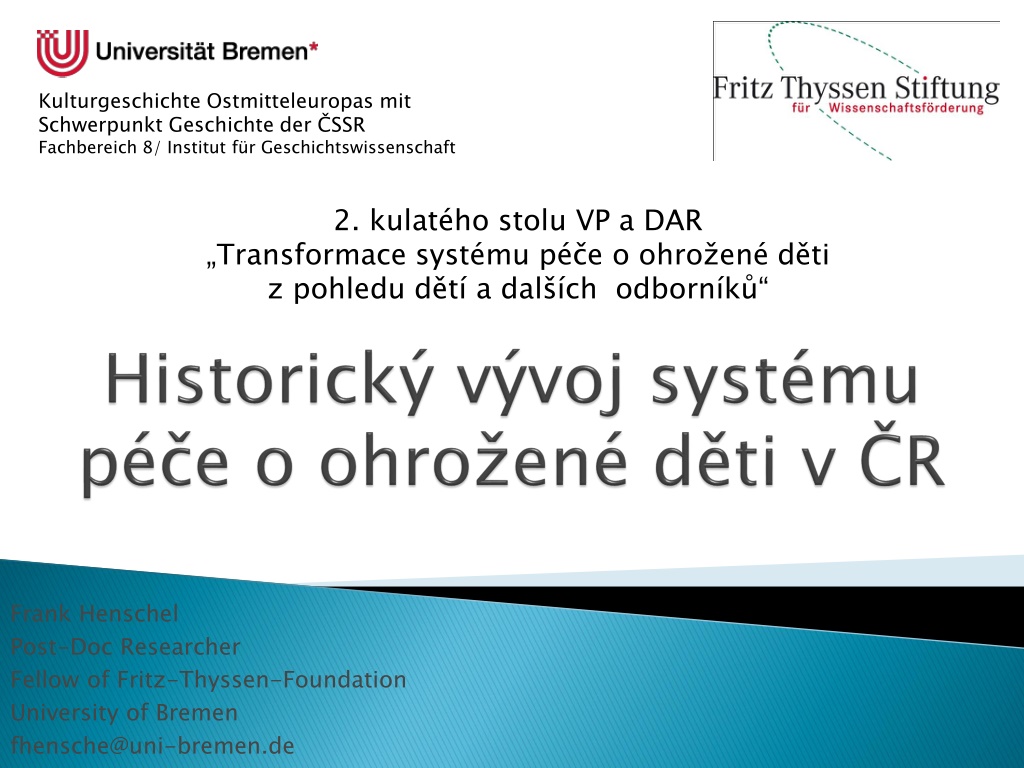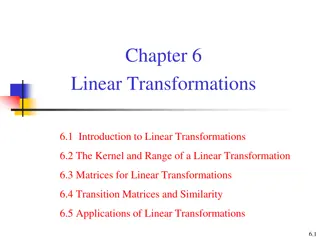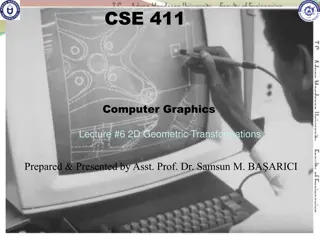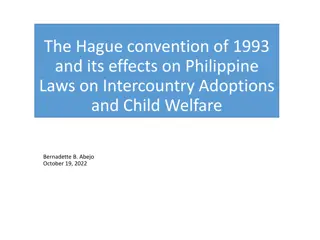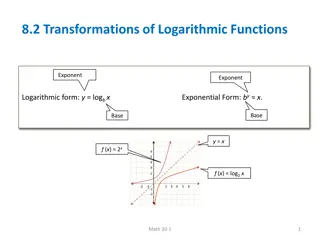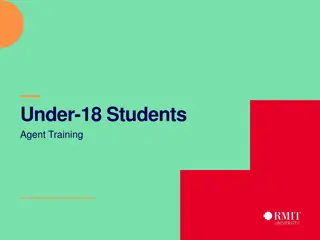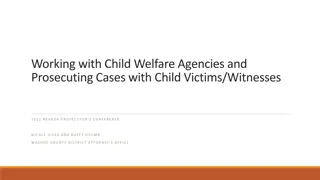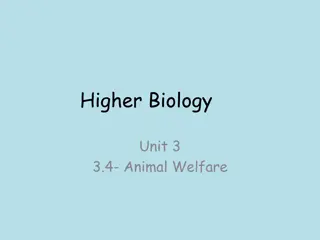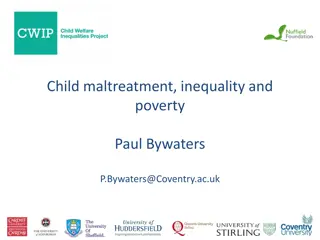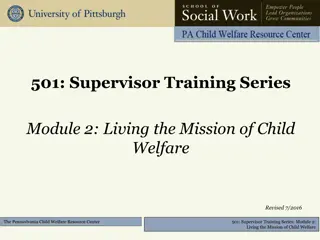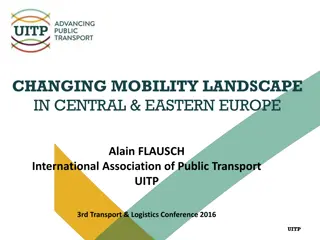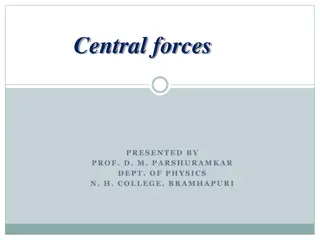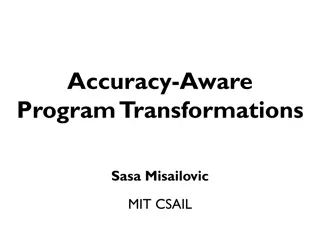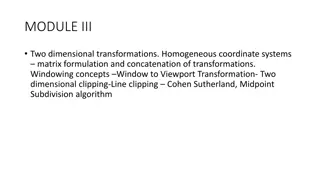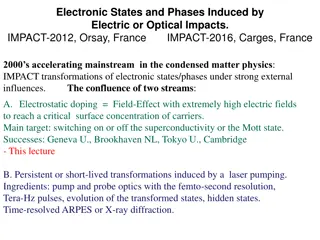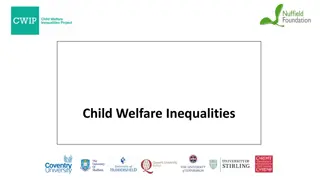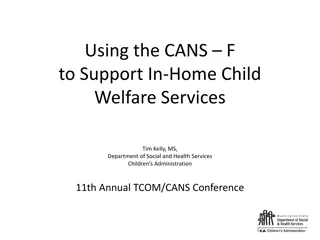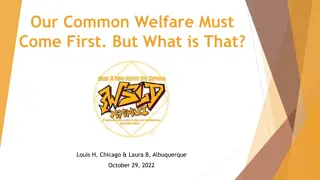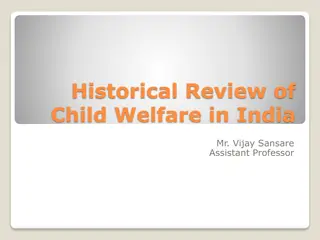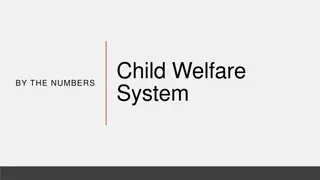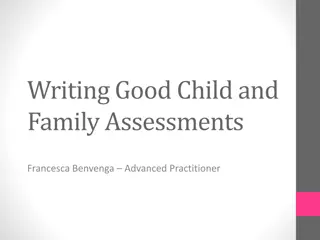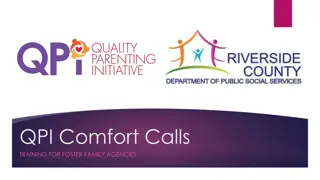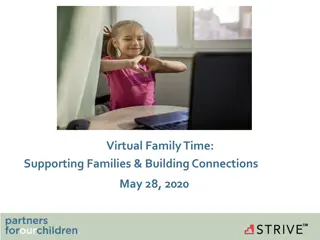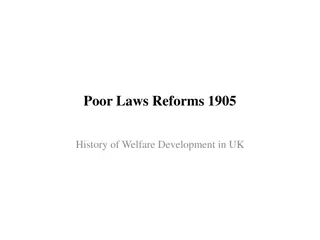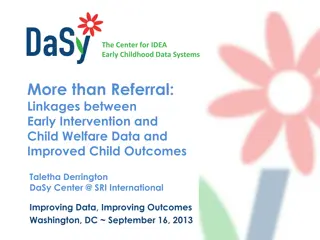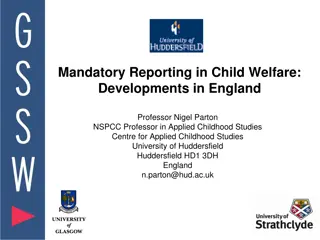History of Child Welfare in East-Central Europe: Transformations and Challenges
Exploring the evolution of child welfare in East-Central Europe with a focus on the history of the SSR, this research delves into the abolition of foster care, restructuring of childcare institutions, healthcare for infants, and the complexities of state intervention in family matters during the mid-20th century. Issues such as neglect, parental rights, and institutional care for children deemed difficult or disabled are examined, shedding light on the social, political, and ideological factors that shaped child welfare policies in the region.
Download Presentation

Please find below an Image/Link to download the presentation.
The content on the website is provided AS IS for your information and personal use only. It may not be sold, licensed, or shared on other websites without obtaining consent from the author. Download presentation by click this link. If you encounter any issues during the download, it is possible that the publisher has removed the file from their server.
E N D
Presentation Transcript
Kulturgeschichte Ostmitteleuropas mit Schwerpunkt Geschichte der SSR Fachbereich 8/ Institut f r Geschichtswissenschaft 2. kulat ho stolu VP a DAR Transformace syst mu p e o ohro en d ti z pohledu d t a dal chodborn k Frank Henschel Post-Doc Researcher Fellow of Fritz-Thyssen-Foundation University of Bremen fhensche@uni-bremen.de
1950: Abolition of Foster Care (PstounskPe) Report of Ministry for Social Affairs Exploitation of foster children as workforce Missing school attendance 1947: Law of Youth Welfare (48/1947 Sb.) Nationalization of home system Abolition of public-private Okresn P e o ml de / Okresni Starostlivos pro ml de 1951: Restructuring Abolition of Ministry for Social Affairs Ministry of Health Care 1) Kojeneck stavy 2) D tsk Domovy 1-3 let Ministry of Education 1) P ed koln D tsk Domovy 2) koln D tsk Domovy Frank Henschel fhensche@uni-bremen.de
Healthcare and Nutrition for Babies and Infants (Ideology) and Education for older Children Strict age limits of home institutions Babies (0-1) Infants (1-3) Preschool (3-6) School (6-10/15) Residential Care was considered equal or even superior to family care. Frank Henschel fhensche@uni-bremen.de
No general, juridical basis, but random resasons to take children away from parents E. g. Neglect, Bad Parenting, School problems, Violence, Suspicious Lifestyle (especially of Mothers) Report at N rodn V bory by parents themselves, by teachers or caretakers, other family members, colleagues) Investigation State Custody Confirmation by court Examination of Children in Z chytn D tsk Domovy Segregation of disabled /difficult children in special homes Frank Henschel fhensche@uni-bremen.de
1965 ca. 17.000 normal, 3.000 difficult , 10.000 disabled children in residential care Since late 1950s: Studies on Deprivation (Mat j ek and Langmeier) 1960s: d tsk ot zka professional and public pressure for reform Stated deficits: (1) large groups, (2) less educators, (3) isolated homes,(4) missing alternatives like adoption and foster care Frank Henschel fhensche@uni-bremen.de
New Family Law 1964 (94/1963 Sb.) Home child free for Adoption after one year of missing interest by parents New Home Types: Family-like Homes for long term admittance (small groups, permanent educators), SOS-villages (nationalization 1973) Boarding-school homes for short-term admittance Re-Introduction of foster care by law 1973 (50/1973 Sb.) Frank Henschel fhensche@uni-bremen.de
Kulturgeschichte Ostmitteleuropas mit Schwerpunkt Geschichte der SSR Fachbereich 8/ Institut f r Geschichtswissenschaft Frank Henschel Post-Doc Researcher Fellow of Fritz-Thyssen-Foundation University of Bremen fhensche@uni-bremen.de
